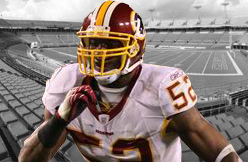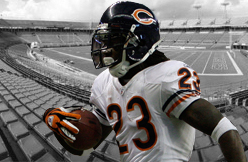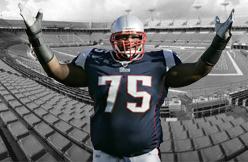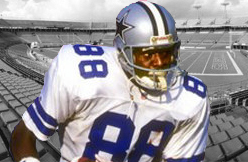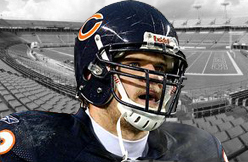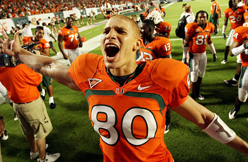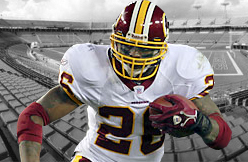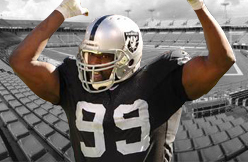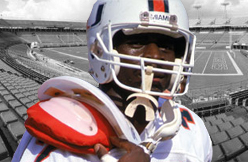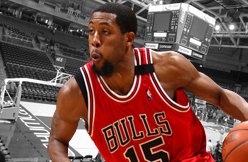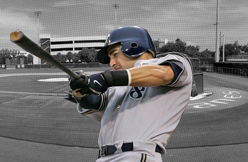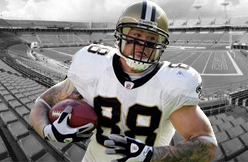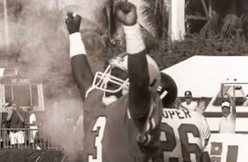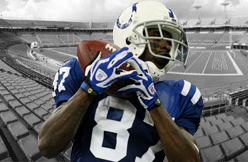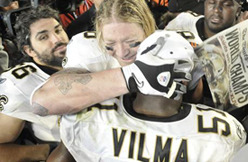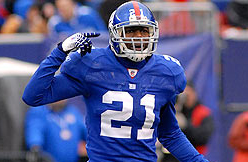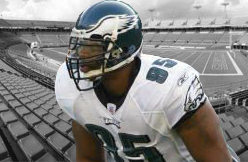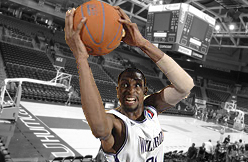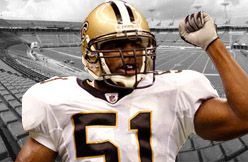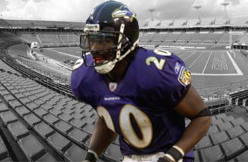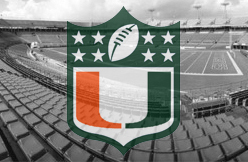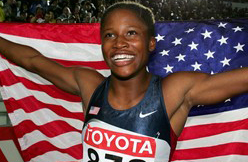
In Part II of our interview with Mike Rumph he talks about the differences between Coach Davis and Coach Coker, Terrell Owens, what the Hurricanes need to do to get back on top, "The U" Documentary and much more!
Click here to read Part I of our EXCLUSIVE interview with Mike Rumph.proCanes: Talk about Butch Davis and Larry Coker as coaches. They say Butch was a disciplinarian and Larry was loose. Talk about that difference and was it that obvious of a difference between the two and did Larry have as much control as Butch?
Mike Rumph: The good thing that Coach Coker had was great assistants. When you’ve got great assistants you’re always going to look good and I think that really helped him. I think he did a good job when he came in. I was a senior he didn’t bother the seniors really, but he would get on the young guys and I think that’s smart. Just overall discipline of how things go kind of changed when Coker became the coach. We did a lot of initiations and stuff like that [with Butch Davis] but he came in and stopped it. I thought that was important because that made me and my class really close because we had to stick together. We had to earn our respect with the older guys and I think that’s very important, but it comes to a point when you’re getting too physical with the guys when there’s fights and stuff. It comes to a point where you don’t want injuries, but I think there’s still got to be something. You’ve got to make those freshman earn it. The freshmen felt like they didn’t have to earn it, they felt like I’ve already arrived I’m here and nobody will give them a bother. With Butch Davis though, he was like turning the other shoulder, like I don’t know what’s going on and in the meantime we were fighting for our lives in there. [Laughter]
pC: What sort of initiations?
MR: You had to shave your head. If you play slick and go home and shave it without us doing it they try to do your eyebrows so you’ve got to deal with that. We had to jump off the big platform diving board off the pool. One day we were out there stretching, it was two-a-days, hot, it was like day 10 and he’s like ‘hey go over there and take those pants off and go to the pool.’ We were like 'awe here we go again,' but we didn’t know they were going to make the freshman jump off the tallest diving boards and I’m afraid of heights! We had two guys that couldn’t swim and they had to jump anyways. Kenny Dangerfield and Anthony Fisher, they had to jump anyway and they had the lifeguard waiting for them at the bottom. Shaving your head, singing, sing at lunchtime. That’s as far as I can get into all that. But like taping your locker up, that’s one thing that got me as a freshman. You would practice and get a little break in between practice and you didn’t want to hang around so you would go somewhere else because if you stayed in the facilities there would be horsing around and you would get no rest and you might have to fight somebody, so you would disappear until five minutes before it’s time to go back to meeting. We would come in and five minutes before the meeting your locker has so much tape around your lock. So, you’re like oh shit, you don’t want to be late and you’re trying to undo this tape and they’re just dying laughing. Other times, five minutes before practice you come and get dressed and your helmet is missing and they’re like I don’t know and you’re the like last one in there and another guy in there says ‘you might want to check the ceiling’ and you go up and check and find your helmet there. Can you imagine that as a freshman? You don’t want to mess up, you don’t know nobody, you’re coming in and you’ve got this much tape (Rumph shows two inches of tape with his hand) on your lock and the meeting is in two minutes.

MR: Ryan McNeill. Duane Starks. To this day I still get mentored by Duane. He’s a good business man too. But Duane Starks, we did a lot of drills together. Reggie [Wayne] and all of them always came back. Edgerrin is one of the guys who started all that stuff. I look at him as one of the god fathers of going through the probation years and then coming and being one of the first guys that started the first round draft pick streak. He was one of the first guys of being a first round pick and one of the first guys that said I’m not going work out at the combine. Why train in Indianapolis and go through the combine there when next week they are going to be doing the same thing in South Florida in the sun with the fans behind your back. So, we all decided were not going to work out up there and we’re going to train in Miami. Edgerrin was one of the first guys to do that, so I always look at him as one of the god fathers. He’s a really smart guy as business man and as a football player and most people don’t know that but he helped me understand how things were going to be as a junior and senior and what to look forward to. Al Blades too. He was a crazy guy but really emotional leader and the big brother on the team. You would always go to him if you had a problem because he had your back no matter what. He was a good guy to be on the field with because he intimidated a lot of the other players.
pC: He was one of my favorite players to come through “The U.”
MR: He was a great, hard hitter. Really pretty athletic guy. Understood the defense but really good on the motivation and intensity he brought to the game, like a Ray Lewis. When I went to the 49ers, Dorsey went there and Al Blades was there already and he had gotten so much better. I could just remember watching film and I was like “that’s Al?” His footwork was so much better. He got so much better being out there with the 49ers. He passed you know at such a young age.
pC: Why the number 8?
MR: I was 4 in high school. So I figured I was going to be 4 but it wasn’t available. Najeh [Davenport] had it. So I got 8.
pC: Any nicknames?
MR: When I was at UM, “eight ball.” When I played the 49ers they called me Old G. That’s because I was one of the oldest players in the locker room I was like 24.
pC: Really?
MR: 25 is old man!
pC: You were drafted in '02 and you were the last Hurricane drafted in the 1st round. Talk about how a lot of people might call you a bust. You went through a lot of injuries and they tried to move you to safety. What was the hard part of transitioning and did you play as long as you would have liked?
MR: The tide changes in the NFL a lot just like the ocean. I was in a lot of rough tides. I went through three different coaches in the 49ers in the last four years and that’s tough even in the business. If you’re in the business and you got a new boss every year it’s hard to adapt and most new bosses want to bring in their own employees. I went from Mariucci and the playoffs. He got fired the day after the playoffs which was stupid. Then to Dennis Erickson for one year, then to Mike Nolan for two years and with Nolan he moved me to safety so I said, “great here we go I’m going to show you how I can play safety” and in the first day he moved me to safety I tore a ligament in my foot. So I came back a year later as a safety. I was jacking people up every game, I was player of the week, I was jacked up killing people as safety and he moved me back to corner. Right after that they traded me to the Redskins. I was upset but the Redskins just came off of second playoffs in ‘05 so I was like okay. I’m playing with Sean [Taylor], I’m playing with Rocky McIntosh, Santana [Moss], all my guys are there so I’m good. So when I went to the Redskins I had what’s called a cage locker. Its not a real locker it’s just a moveable one for guys that are not going to last. I had that locker, I had never had that being a first round pick, I never had a locker like that so I just took that to build my fire and I went out there and had one of the best pre-seasons of my team.
So right away I made a team, they brought me to replace Shawn Springs who was hurt but he came off his injury like midway through the season and they deactivated me right when he got healthy. That means you could watch but you can’t play. They deactivated me for six games. I had a knee bursa which means that there’s fluid in my knee but I had that week one and I played all seven games with that and my stats weren’t bad. I had good stats. I didn’t get scored on and that game he came back I got scored on with Peyton Manning and Marvin Harrison on a five yard slant for a touchdown. That’s the only time I got scored on the whole year. All the other guys got scored on every game and Shawn came back and they deactivated me, so after that I went to free agency as a guy who only played seven games in the season and people want to know why I only played that much. That was messed up. It’s hard to come home and explain to your son because he was like ‘why you not playing’ and whatever so it was kind of tough but then I went into free agency and I went to the Rams and that was one of the worst mistakes. That’s like leaving UM to go to Florida State.
pC: Did you have a choice?
MR: Yeah, but my agent was saying that’s the best position for me and the whole time he was the best agent but at the end it kind of faded away and he couldn’t get too much going for me. So I was just upset with the unloyalty of the league and jumping from team to team. I was always like I bleed for whatever team I’m on that’s my team. I hated moving around and I had to move my family like three times and my kids leaving school every few months. I just told myself I can make more money if I really work hard, I can make more money without football and as a business man instead. I really believe that. It’s taking me a little long but who knew that the recession was going to come up. I retired in ‘07 and the recession hit right there. So it was hard to start my puppy business and Play Fast in the middle of a recession.
pC: Was it a hard transition to safety?
MR: It is. The change from corner safety is tough but what helped me is, being a corner I knew what I wanted my safety to do. I knew what I would like in my safety because I had some really good safeties playing with me so I instantly became that guy who I wanted my safeties to be; a communicator, and intimidator, a guy that could cover, a guy that could come up with plays against the run and that’s pretty much it as a safety. You could call all the plays but you’ve got to be thinking on the run but it wasn’t a hard transition for me because I played it. I had so much success I knew what I would want a safety to be. I never shut up. I was always talking. Watch this one, watch that one, when the motion comes they’re going to do this, when they switch covers and all that stuff. I was just constantly talking and that way we would always know what’s going on and we might be wrong but when we’re wrong everybody’s wrong not I’m wrong and you’re right. The communication aspect of it, that’s what I brought to the game and I think I didn’t have enough time as a safety because I told Reed, I always messed with Reed a lot saying "I’ll be a better safety than you in the league man." But he has really good hands. It wasn’t a bad transition for me at all and I shocked a lot of my teammates and a lot of my coaches how I came up and was really aggressive with the run.
pC: Who was one person that was influential in developing your game?
MR: I've got to say Nick Ward was the guy. I just couldn’t understand. I thought he was one of the best corners out there but I think he got into Butch Davis’ doghouse and they didn’t play him. In practice he was outstanding but in games it never really turned on in the games. But he was a guy that taught me a lot. Jeff Popovich was a guy who I trained with a lot my sophomore year that helped me improve. He was the guy where we worked out for two hours with Swasey and then I'd say "Jeff let’s do 30 more minutes of football drills" and he was like ‘let’s go!’ That same guy that Jeff was for me in college I had guys like that in high school. I always picked the guy that I knew they didn’t mind working. If I was going to work out, I was going to work out with the hardest worker, Delvin Brown. If I’m going to run sprints, I’m next to Santana. If I’m going against a receiver, I’m trying to go against the best, so I was always putting myself with people that were going to push me to the next level. Influential players Nate Webster, the tenacity, everybody knows Nate. Nate was an inspirational player, Al [Blades] was, Coach Pagano, Coach Shannon.
pC: Do you have any game day traditions? Songs?
MR: Yeah, Sade. That’s my girl. She’s like my girl that my wife don’t know, but she don’t know either. [Laughter] But that’s my favorite, man. As a corner you gotta manage the rah, rah, rah, to be really focused and calm. I would warm up real intense but when I got into the locker room right before the game I’d kinda put on my Sade and mellow out. Just relax and start really mentally focusing on my technique and how I’m going to place my receiver. I would listen to her, Sade’s greatest hits, and Lover’s Rock. When I got a little older Lover’s rock became my one and I’d play between tracks #2 thru #4 and I’d fall asleep sometimes in my locker. You know you’re so nervous and you’re just like already relaxing and you fall asleep. But that’s my girl before the game I always listen to her.
pC: What do you think is the biggest difference between playing in NFL and college?
MR: The overall speed of the game. People say the speed of the receiver or corner. I didn’t see a big difference because I had going up against a lot of talent but those offensive lineman and defensive lineman, they’re so fast and so agile . The first game in the NFL I see a lineman come in and I was like I’ll do a little move like this and the lineman did the same thing and I was like how’d he get me like that? Those big guys, they’re just so agile like that and those big guys as soon the quarter back says hut they’re already at you. You gotta learn to hit them low. When you hit them in the knees they have to fall anyway.
pC: You were TO’s (Terrell Owens) teammate he wasn’t as crazy in San Francisco as when he went to the Eagles, and Cowboys. How was he as a teammate?
MR: TO was a good teammate. He’s great to have on your team. He has his circle of people who he really trusts, that he deals with on a daily basis and sometimes he may not let everybody in on his circle. He’s from a country town, grew up with his grandma just like me and I guess he just didn’t have a lot and once he got the money they say money doesn’t really change you it just brings out who you really are, so he was just like a damn country boy with an attitude and what people don’t understand is TO played under Jerry Rice and that’s where he gets that work ethic from. He has great work ethic but at the same time, I think he just talks himself out of a lot of money. If TO just shut up and played, he’d probably be one of the richest, best players in the league, but he talks his teammates and coaches under the bus sometimes and that just gets him into trouble. But this guy, he never worked out with us. He has his own little workout regimen. I call him a genetic freak. I saw a picture when he was 14, he looked the same. We’re all in the gym going hard and TO doesn’t work out or anything he’s just all ripped up. [Laughter]
pC: He tore up the locker room in Dallas, can one guy really do that?
MR: Yeah. TO would come in like, if the meeting is at 8 he would come in at 7:59 and I think he did that on purpose, like to say this is me. He would always be like I’m the last one, always the last one to come into meetings. He’ll be in practice and the quarterback might misthrow a ball and he’d be like ‘give me the damn ball! Get the ball to me!’ You’re like, man it’s not that serious you know? That’s the guy who’s going to help you make more money. Who’s going to help you with the longevity of the game. Why are you yelling at him? Talk to him and tell him what you want and he’ll get it to you. Be professional too. So I just think in those instances he could have been more diplomatic and he probably would have stuck with a team a lot longer. But he always had those days. Some days he was cool and some days he’s TO. Some days he’s Terrell some days he’s TO. But I can tell you one thing he was probably one of the hardest workers I played with in the NFL and the thing with him, he was always injured but he would go for like 8 weeks without practicing but every single week he would have 150 yards, 155 yards, 160 yards and it was like the most amazing thing. I’m seeing this guy never practice and he’s just putting up 100 yards every game, so I just think he’s probably one of the best receivers; if he just went out there and played.
pC: You think he was faking the injuries?
MR: No, I think he was injured and he had a whole medical staff come in and take care of him and stuff and San Francisco is just so much more advanced compared to other cities. As far as training-wise, so we had the best, I had acupuncture. I had an old lady 100 yeas old that would rub a special oil on my leg and my hamstring would be better in two days. They were so serious about the training. That’s the technology area so they got all the technology. But he had all his little teams flying in, his personal trainer and a guy that got his food to make sure he was eating the right food. I think if you’re eating right and living like that you’re going to have an advantage over most guys any day.
pC: Going back to Hurricane football, the last few years the program has been down, why do you think it got like that, are we on the right track, do you think Randy is the right man?
MR: Great Question. Randy is the man.
pC: You think he can do it?
MR: In my heart I think he’s the guy because he reached out to a couple of former players and asked us stuff like how can he get more former players to be involved with the guys. He picked me, I was one out of five guys that he asked to go to that meeting to see how he can get things back on track. So I think he’s the guy being that he’s reaching out and trying to understand it. I think right now he’s still a young head coach and it’s tough trying to be the coordinator and the head coach. I know he has somebody with the title of defensive coordinator but you know who’s making those calls. I think that if he just simplified himself and just was the head coach, address the team, call timeouts, be the head coach and let your coordinators do their thing. Every once in a while be like 'hey run that blitz we did in practice,' but you need to get two good coordinators that are better than you are and you’re always going to look good. I think that’s what we’ve got to do. Butch Davis had a great staff, Coker had a great staff .
pC: Jimmy Johnson had the greatest staff
MR: And recruiting. Recruiting is so important. You’ve got to get your Florida guys and I think he believes in that. We were letting Louisville, West Virginia, Rutgers take all our players from down here and UM should be getting them man. I think we’re missing out on a few players like that. We should be in the top three recruiting classes every year. I think that’s one of the goals that we’ve got to set and then your seniors seeing that you've got good talent coming in this year they’ve got to be able to set the tone and groom these younger guys into something special. We’ve got to set our sights high we’ve got to know we’re going to a BCS bowl game this year. Without a doubt we’re going to a BCS bowl game and I think things are starting to turn around. They are start trusting him, I just hate that the season ended 9 and 4 instead of 10 and 3. 10 and 3 would have looked so much better.
pC: We were just manhandled against Wisconsin.
MR: They dominated every aspect of the game. We’ve got to get those big boys up front. Coach Shannon told me one time he’ll go anywhere for a defensive tackle , anywhere in the country, but everything else he’ll stay in Florida for. But we have to see that. Go get us a defensive tackle that’s going to help stop that run. My defensive line my senior year was so good we barely blitzed and until you get that, it’s hard to compete man. You’ve got to have that defense that’s going to set the tone. Defense wins championships.
pC: Why do you think the program went down the way it did?
MR: I just think recruiting took a hit. That whole Brock Berlin era. I love Brock, but that was just tough to swallow man because the whole look of the team really changed in that era and that was due to recruiting, due to the newness of the team and the new coaches, it takes time. See Miami fans want wins right now and that’s not going to happen. I heard it on the radio this morning. ‘Why do these guys keep switching coaches every two to three years?’ You’re not going to win like that and we went through so many coaches in the last few years we’ve got to get one guy and believe in him for at least five years and let him do what he can do. If you’re switching every two years you’re never going to have stability. It’s hard.
pC: Talk about Butch. Did he say I’m not going anywhere and then left for the Cleveland Browns?
MR: Yeah he said that and it bothered a lot of players, but it never really bothered me because I understood him. I just put myself in his shoes. I got kids and a family and somebody offered me 11 million dollars, I’m going to be gone too. I’m going to pack my bags up too. Now the way he did it? That wasn’t right. As a coach, you’ve got to have that leadership position and show yourself as a leader and he was saying with his words that he wasn’t going to go anywhere, but when it came down to it, those guys offered him that money and they offered him that job and his plans kind of changed but until the end he was being Butch Davis and being the leader of the team. What kind of coach is going to come in and say ‘oh I’m thinking about going to Cleveland.’ He can’t say that. That would have been worse. He was just playing the politics of it and he made a decision and went with it. I wasn’t mad at him but a lot of guys were pissed about that and I guess how it ties into the recruiting process and he left right before the recruiting process and it was in shambles because Pete Garcia wasn’t there. We took a hit because of that.
pC: The story goes that a bunch of seniors went to Paul Dee and told him to hire Larry Coker, because the rumors were that UM was looking at Barry Alvarez.
MR: Yeah. That didn’t sit good with us, that didn’t sit good in our mouth. We didn’t like the sound of him [Alvarez] coming in and we knew coach Coker and we felt like he could do it. So we vouched for him. I wasn’t the guy that went over there and talked to Paul Dee but we all pretty much said that’s how we felt. We didn’t want Alvarez we wanted Coach Coker somebody from our house.
pC: As far as let’s say corners, why do you think we haven’t developed some good corners since you left other than maybe Antrel Rolle who is now a safety? Brandon Harris looks good, but what do you see in their development or lack of, when you watch them play. Does something jump out at you?
MR: I think they just don’t have a lot of pride and they’re not taking full pride in what Miami football should be. Is that the coaches job to get them like that? I don’t know. I can honestly say that all that stuff reflects on the coaches. As far as how the secondary is playing and how the defense is playing that’s a true reflection on the coaches and the coaches understand that, so I just think maybe they need to be more tenacious, intimidating, how Wisconsin played is how we should have played, they looked how we should’ve looked, when they were hitting our quarterback late and giving those hard hits on the sidelines, that’s UM football and I was getting excited at how they were playing but UM wasn’t playing like that. When they’re quarterback is falling they were easy on him, they were helping guys up and all that crap. I’m like you’re in war time like Kellen Winslow said. After the game I’m you’re best friend but during the game… They’ve got to get that tenacity back. When we were on the field we felt like we were going to intimidate those guys and we were going to make those guys quit. That’s how we felt when we came out the smoke, but I don’t know if they feel like that. They feel like oh we’re just playing a game of football. There’s more to it than that I think. I don’t know, I like the staff but like I said you better have people under you that are going to make you look like a good head coach and as a coordinator you’ve got to have some good assistants too, but it takes a while to get that stuff going together, to get to know each other and stuff, but I think to get it back, the coaches have to set goals for themselves and look at themselves in the mirror and say, ‘is this enough?’ ‘We’re not going to sit here and point fingers at these players, we’ve got to hold ourselves accountable and we’re not going to stop fighting until we win, we get to a BCS bowl game or win a National Championship. We’re not settling for a 9 and 4 [season] no more. They’ve got to take that attitude to the players and that attitude the players will pick it up because that’s what young guys want, they want that, but you’ve got to instill that in them.
pC: You mention running out of the smoke. You ran out of the smoke in the Orange Bowl. Now we’re playing at, this week it’s called Land Shark stadium. What do you think of that move?
MR: I get chills right now when I think about coming out of the smoke. Honestly. It’s just, money cant buy running out of the smoke. You can’t compare sex to running out of the smoke. [Laughter] I mean you never, it’s just a feeling you can’t imagine it’s like you’re on top of the world, you’re anticipating the game, you’re warming up and getting ready and you know you’re so psyched and it goes back to me seeing Tony Gaiter play and watching the guys in the tunnel, shake the tunnel, jumping around. I’m seeing Dan Morgan as a freshman and all these young guys and they’ve got their shirts folded up and it’s just the energy and when the smoke starts and you run through the smoke and there’s a point you can’t see and when you finally can see, there’s the band and 60,000 people screaming. There’s nothing like it man, nothing like it. I just went from feeling like I was a good player to a great player when I came out of that smoke. And the Orange Bowl in itself is history. I was sad they tore it down but I understand the politics and the economics of the game so I think Landshark is great but it’s nothing like coming out of that smoke. It’s unbelievable.
pC: Have you been to a game at Landshark?
MR: Yeah
pC: What do you think?
MR: I like it. Like I said, you gotta sell tickets. You gotta sell tickets.
pC: And that’s another thing you’ve got the fans in Miami that are fair-weather! When you’re not winning they’re not going!
MR: Yup and I went through that. I went through both. I went through when we didn’t have a lot of fans. I went through the point where I used to go to the clubs and say “I play for UM” and they’d say ‘the line is over there.’ And then when we were winning they’d say ‘Oh Mike come in!’ and I didn’t even say anything. So we went through all that. We saw the total transition even like the girls on campus. When we were losing I would say I played for the team and they would say ‘so what, my dad owns or works on Wall Street.’ But, once we started winning the tides kind of changed. Winning helps everything. When a team is winning it helps the whole economy. Look at the Heat when they won the championship, the economy changed. If the Dolphins would have gone to the Super Bowl you know how much money would have come into this city?!
pC: Did you watch “The U” Documentary and what did you think?
MR: I thought it was really great man. I thought it was really good, but in the end it kind of left me hanging because I expected it to be a little more and to go more into the best UM team of all time! The team people were saying could play against the Bengals and stuff like that, the undefeated Canes. That’s got to be part two man!
pC: They apparently do want to do a Part II.
MR: Really? They’re telling the story half way man because the UM that they told, most people don’t know that UM but the UM that we presented, most people know about that and they’ve got to show that side of it. But, I will say this, a lot of my friends that hate UM, they called me and said look I’ve got more respect for you all now.
pC: Really?
MR: Yeah, a lot of people respect UM more because they saw what we went through. They thought we were always just cocky and arrogant but we had earned that stuff. Russell Maryland and Melvin Bratton and them boys they set the foundation for us. It thought it was great.
pC: Word Associations, give me the first thing that pops in your head when you read the following:
Randy Shannon: I knew that was the first one! Determined.
Larry Coker: Coker? Ah, he’s aight, motivation.
The Orange Bowl: Legendary
Sebastian the Ibis: Comedy [Laughter]
Butch Davis: Discipline
Coral Gables: Beautiful
Fiesta Bowl: History, history.
Ohio State: Hate is a strong word, but Hate. Hate. [Laughter]
pC: Favorite NFL team?
MR: Dolphins
pC: When you played professionally would you still follow the Dolphins
MR: Actually I would and we [49ers] played against the Dolphins but I was hurt so I actually never played against the Dolphins. But yeah, I always watched to see what was going on and I couldn’t wait to play them but it never came around and even when I was a free agent when I left the Redskins, I tried to come on with Cameron and thank God I didn’t because that would have been a terrible mistake, but he didn’t want me man. I live right here and I couldn’t even get a work out. He didn’t even give me a workout. I was kind of bitter because I’m a home town guy, a great story, I live around the corner and I’m a Dolphin fan and you won’t even give me a work out? It just really behooved me.
pC: Favorite NBA Team?
MR: Heat.
pC: Favorite Baseball team?
MR: Marlins. [Laughter]
pC: You’re a hometown guy! [Laughter]
pC: Favorite food?
MR: Lobster.
pC: At Red Lobster?
MR: Hell yea! [Laughter]
pC: What band or group would I most commonly find on your IPod other than Sade?
MR: Gucci Man [Laughter]
pC: Movie you can watch over and over?
MR: Rudy.
pC: TV show you got to DVR you can’t miss?
MR: Shit. NFL Network. I’m recording it right now! [Laughter]
pC: What do you do in your spare time?
MR: I go fishing, yeah I fish and read, ride bike. All that stuff.
pC: You have a family right?
MR: Yeah, my son’s 8, my daughter’s 3.
pC: Two website you got to check daily?
MR: proCanes.com and facebook.com
pC: You work with young kids right now, what advice would you give him growing up and wanting to go to the NFL?
MR: Listen and work hard. That’s two of the best pieces of advice I can give a kid because by listening you learn a lot talk is cheap. If you could learn to pay attention to what people are telling you, especially when it’s good, it’s a great weapon. And hard work, I’m not saying that it will get you everywhere but if you work hard enough and you’re smart about things, they say preparation with opportunity equals luck. So if you’re prepared and you work hard and the opportunity comes around, you create your own luck. So I would just tell kids to listen and outwork people no matter what it is. Be persistent with it. I’m learning that now. See football and life are congruent, they run hand in hand and I try to get the kids to understand that in life sometimes you don’t get that second chance like you do in football and do the play over but it’s so, so similar. With my kids, they’re learning accountability at a young age, they’re learning discipline at a young age, they’re learning how to be on time at a young age, they’re understanding teamwork. If it’s just them they may not want to do it, but if they see 15 other kids that they admire and are their peers doing it the right way, they’re going to really push to do it the right way also. So, I think football prepares you for the game of life. Even for business, if I attack my business how I did football, I should be a billionaire by now! [Laughter] But I can honestly say I haven’t. With my business I probably gave 70% but with everything, you got to give 110% that’s why I can’t sit here and pout and moan about my business because I knew I wasn’t putting all my effort into it. And that’s the same thing with football and the same thing with life. Why complain if you know you’re not really giving the effort. So that’s how I look at it.
We at proCanes.com would like to thank Mike Rumph for being so gracious with his time to do this very insightful interview for our new feature "Tracking proCanes." Click here to check out our past interviews with Leon Searcy, Steve Walsh, Frank Costa, John Routh, Chad Wilson and more!















